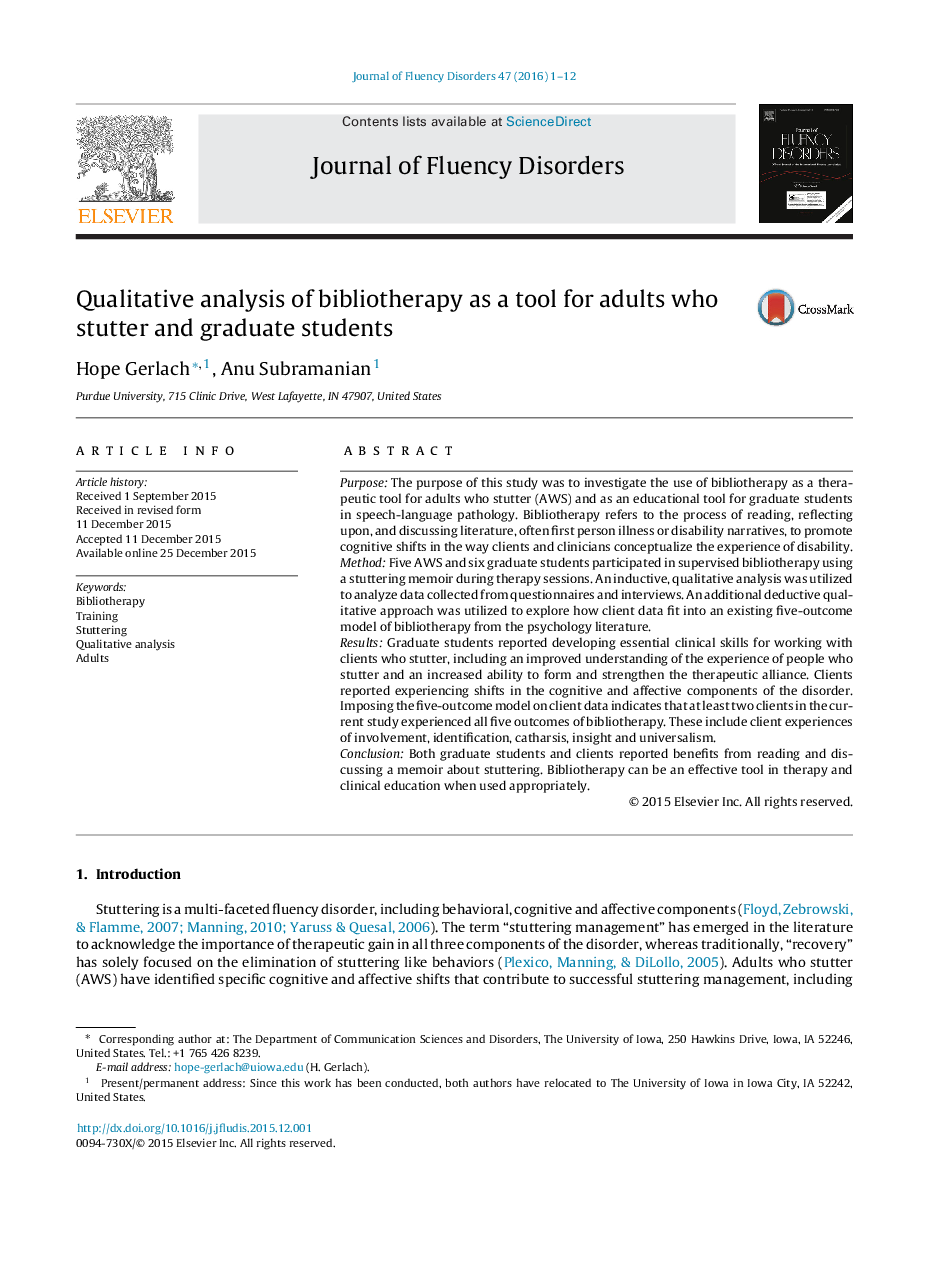| Article ID | Journal | Published Year | Pages | File Type |
|---|---|---|---|---|
| 911285 | Journal of Fluency Disorders | 2016 | 12 Pages |
•AWS noted gains in the cognitive and affective components following bibliotherapy.•Bibliotherapy provided graduate students understanding of the stuttering experience.•Bibliotherapy appeared to strengthen the therapeutic alliance.•Some outcomes reported by AWS were as per the five-outcome model of bibliotherapy.
PurposeThe purpose of this study was to investigate the use of bibliotherapy as a therapeutic tool for adults who stutter (AWS) and as an educational tool for graduate students in speech-language pathology. Bibliotherapy refers to the process of reading, reflecting upon, and discussing literature, often first person illness or disability narratives, to promote cognitive shifts in the way clients and clinicians conceptualize the experience of disability.MethodFive AWS and six graduate students participated in supervised bibliotherapy using a stuttering memoir during therapy sessions. An inductive, qualitative analysis was utilized to analyze data collected from questionnaires and interviews. An additional deductive qualitative approach was utilized to explore how client data fit into an existing five-outcome model of bibliotherapy from the psychology literature.ResultsGraduate students reported developing essential clinical skills for working with clients who stutter, including an improved understanding of the experience of people who stutter and an increased ability to form and strengthen the therapeutic alliance. Clients reported experiencing shifts in the cognitive and affective components of the disorder. Imposing the five-outcome model on client data indicates that at least two clients in the current study experienced all five outcomes of bibliotherapy. These include client experiences of involvement, identification, catharsis, insight and universalism.ConclusionBoth graduate students and clients reported benefits from reading and discussing a memoir about stuttering. Bibliotherapy can be an effective tool in therapy and clinical education when used appropriately.
